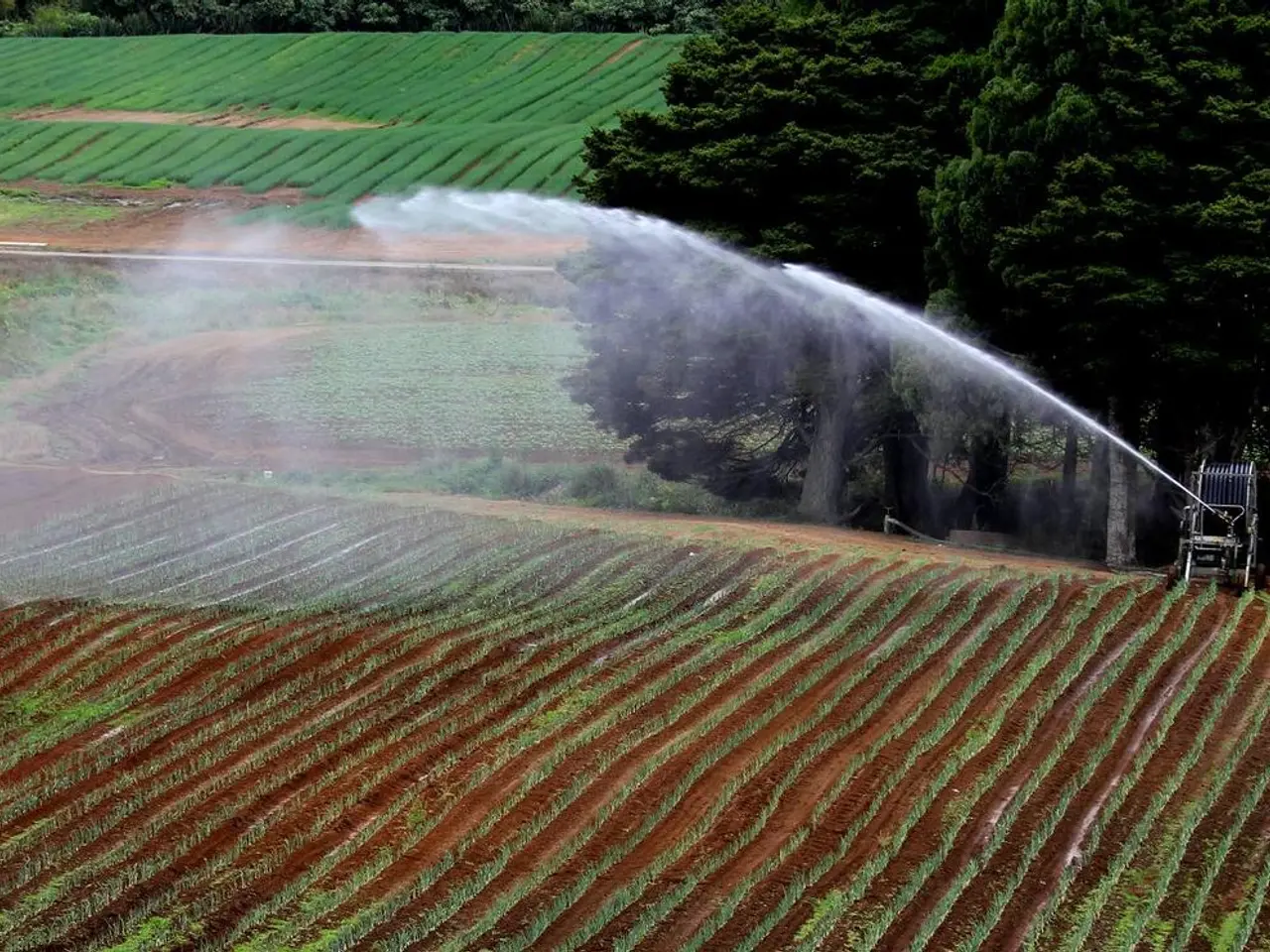Agricultural Practices Contributing to Increased Groundwater Levels: Case Study of Earthworm-Aided Farming by Ramankutty
In the face of climate change and environmental degradation, Kerala, a southern state in India, is setting an example for sustainable living. One such pioneer is farmer Ramankutty, who has transformed his farm into a model of resilience and regeneration.
Ramankutty's journey began six years ago when he was introduced to natural farming through an Art of Living course. Today, his farm is a testament to the power of this method, with improved soil health, water conservation, and better human health.
The practice of natural farming emphasizes minimal or no tilling, the use of indigenous seeds, and organic inputs like the natural liquid fertilizer Jeevamrutha. These collective practices restore soil structure and biodiversity, reducing dependence on chemicals, enhancing nutrient availability, and improving soil texture. This, in turn, supports better water retention and reduces runoff.
The role of earthworms in this process cannot be overstated. By burrowing deep into the soil (up to 15 feet) multiple times a day, they soften the soil and create channels that allow rainwater to infiltrate deeper layers, replenishing underground water reserves and maintaining better soil moisture. This process helps wells that were once dry to hold water again, as observed by Ramankutty.
One such indigenous rice variety that Ramankutty cultivates is Rakthashali. Another resident, Bell KR (43), has seen stable blood sugar levels and no gastric issues since he began consuming Rakthashali rice four years ago. Ramankutty's farming practices have also benefited CM Jose Matthew, a Kerala resident suffering from arthritis and heart issues, who experienced pain relief and improved health after switching to Rakthashali rice.
Ramankutty's farm now houses four cows and two bulls, and he cultivates a variety of crops, including rare indigenous rice seeds like Rakthashali and Navara. Navara rice is known for its healing properties, especially in treating internal wounds and supporting underweight children. The demand for these indigenous seeds is growing among other farmers.
The revival of indigenous crops through natural farming practices can build resilience against erratic weather patterns. Ramankutty's yields have improved significantly over the years, and last year, he cultivated six acres of paddy using 10 different indigenous rice varieties, along with over half an acre of coconut, turmeric, tapioca, and various vegetables.
The combined effects of natural farming techniques and earthworm activity have transformed local farming and water tables, providing a sustainable blueprint for addressing water scarcity and soil degradation in Kerala and similar regions. Ramankutty believes that natural farming can help solve the water crisis caused by global warming.
In summary, the synergy of natural farming techniques and earthworm activity in Kerala leads to improved soil porosity, water retention, nutrient cycling, resilience to climate stresses, reduced input costs, and the revival of indigenous crops. This approach offers a promising solution for sustainable living in the face of climate change and environmental degradation.
Science plays a significant role in Ramankutty's sustainable farming practices, with environmental-science principles guiding his use of minimal tilling, indigenous seeds, and organic fertilizers. His lifestyle choices, centered around health-and-wellness, have extended to food-and-drink, as evidenced by his consumption of Rakthashali rice for its positive impact on health. This combination of science, lifestyle, and food choices is helping Kerala combat climate-change and environmental-degradation issues.




